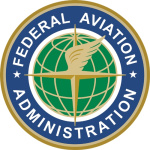- Industry: Government
- Number of terms: 35337
- Number of blossaries: 0
- Company Profile:
Non-movable metal trim tab on a control surface. Bent in one direction or another while on the ground to apply trim forces to the control surface.
Industry:Aviation
A coastal breeze blowing from sea to land caused by the temperature difference when the land surface is warmer than the sea surface. The sea breeze usually occurs during the day and alternates with the land breeze that blows in the opposite direction at night.
Industry:Aviation
The condition of slightly increased air pressure below an airplane wing or helicopter rotor system that increases the amount of lift produced. It exists within approximately one wing span or one rotor diameter from the ground. It results from a reduction in upwash, downwash, and wingtip vortices, and provides a corresponding decrease in induced drag.
Industry:Aviation
A reciprocating aircraft engine having a rated takeoff power that is producible only at sea level.
Industry:Aviation
A system designed to determine an aircraft’s clearance above the Earth and provides limited predictability about aircraft position relative to rising terrain.
Industry:Aviation
Designed for visual navigation of slow- or medium-speed aircraft. Topographic information on these charts features the portrayal of relief, and a judicious selection of visual check points for VFR flight. Aeronautical information includes visual and radio aids to navigation, airports, controlled airspace, restricted areas, obstructions and related data.
Industry:Aviation
An inspection identical in scope to an annual inspection. Conducted every 100 hours of flight on aircraft on under 12,500 pounds that are used to carry passengers for hire.
Industry:Aviation
Speed over the ground, either closing speed to the station or waypoint, or speed over the ground in whatever direction the aircraft is going at the moment, depending upon the navigation system used.
Industry:Aviation
A satellite technology permitting the Department of Defense (DOD) to create, in the interest of national security, a significant clock and ephemeris error in the satellites, resulting in a navigation error.
Industry:Aviation
The ability to determine present position in space independently, and is most often used by pilots.
Industry:Aviation
